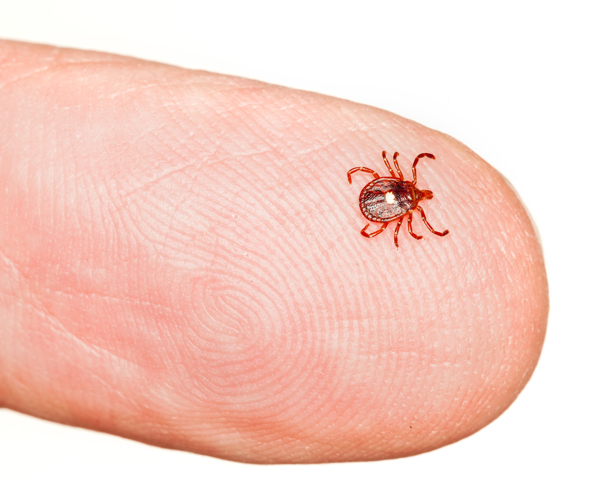The dangerous allergy you may not know you have
By Lynn Allison From Newsmax

Alpha-gal may sound like a Super Hero, but in fact it’s a potentially deadly allergic reaction to red meat most commonly caused by a bite from a tick, particularly the lone star tick. The bite transmits sugar molecules called galactose, alpha 1-3 galactose (shortened to alpha-gal) which, in some people, triggers an immune system reaction that later produces mild to severe allergic reactions when they eat red meat.
According to the Mayo Clinic, the signs and symptoms include:
- Hives, itching, or scaly skin.
- Swelling of the lips, face, tongue and throat or other body parts.
- Wheezing or shortness of breath.
- Runny nose.
- Abdominal pain, diarrhea, nausea or vomiting.
- Headaches.
- Anaphylaxis, a severe, potentially deadly allergic reaction that restricts breathing.
“It is important to protect yourself from tick bites for a number of reasons, not the least of which is the potential for becoming allergic to the alpha-gal molecule,” Dr. Andy Nish, MD, an allergy expert at the NGPG Allergy and Asthma center in Gainesville, Georgia, tells Newsmax. “Alpha-gal disease is different from other allergies in several aspects. First, it requires a tick bite to become allergic. Secondly, alpha-gal is a carbohydrate whereas most allergies are to proteins. Finally, most allergic reactions to food occur within two hours of consuming that food. However, with an alpha-gal allergy, the reaction may occur four to eight hours after meals, frequently waking the affected person from sleep at night.”
If you do suffer from any of the symptoms above after consuming a meat meal, experts advise taking Benadryl or using an EpiPen, if you have one. It’s important to see your primary care physician or an allergist if you suspect that you have alpha-gal. He or she can perform a simple blood test that may pinpoint an alpha-gal connection, along with your history.
Seek emergency treatment if you develop signs or symptoms of anaphylaxis, such as:
- Difficulty breathing.
- Rapid, weak pulse.
- Dizziness or light headedness.
- Drooling and inability to swallow.
- Full-body redness and warmth.
According to Dr. Scott Commins, MD, PhD, associate professor of medicine, Division of Rheumatology, Allergy and Immunology at the UNC School of Medicine, if you do contract alpha-gal disease, you may have to restrict red meat, pork, lamb, venison — anything that has hooves and walks on four legs — for an indefinite period of time. Ice cream, which contains a high amount of milk fat, may also be prohibited.
The best way to prevent alpha-gal, especially if you live in regions where ticks are prevalent, is prevention. Avoid wooded, bushy areas with long grass and cover up. Tuck your pants into your socks, wear a long-sleeved shirt, hat, and gloves.
Stick to trails and avoid walking through bushes. Keep your dog on a leash, say experts at the Mayo Clinic. Apply an insect repellent with at least 20% of DEET concentration to your skin.
Do your best to tick proof your yard and always check yourself, your kids and pets for ticks before entering your home. Take a hot shower and scour with a washcloth to remove any ticks that may be clinging to your body. If you do find a tick, gently grasp the tick near its head with a pair of tweezers and pull it out carefully. Wipe the affected area with an antiseptic.
© 2019 NewsmaxHealth. All rights reserved.
For more on this story go to; https://www.newsmax.com/health/health-news/ticks-allergy-alpha-gal/2019/11/01/id/939742/?ns_mail_uid=6952f1f9-507d-4a20-8cc0-0a1db158d76e&ns_mail_job=DM65508_11042019&s=acs&dkt_nbr=0101247aif0w





